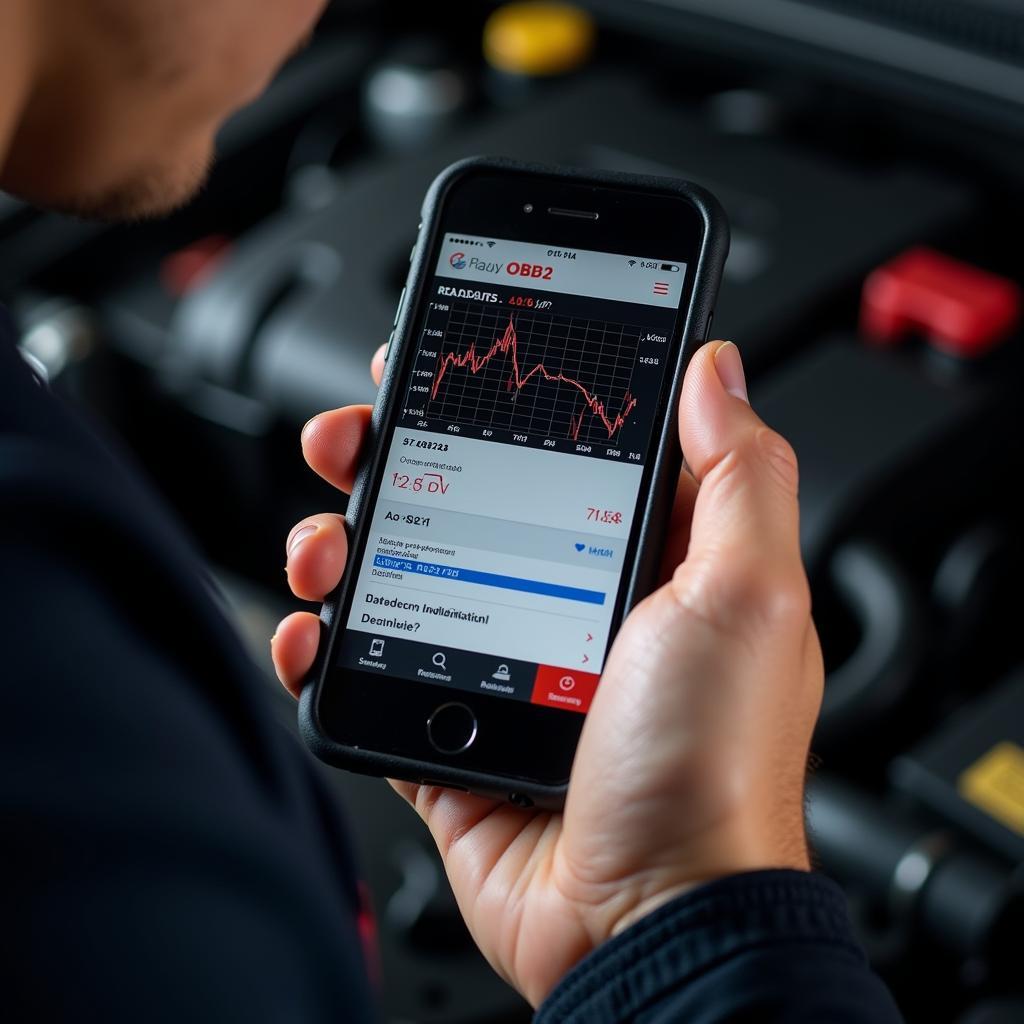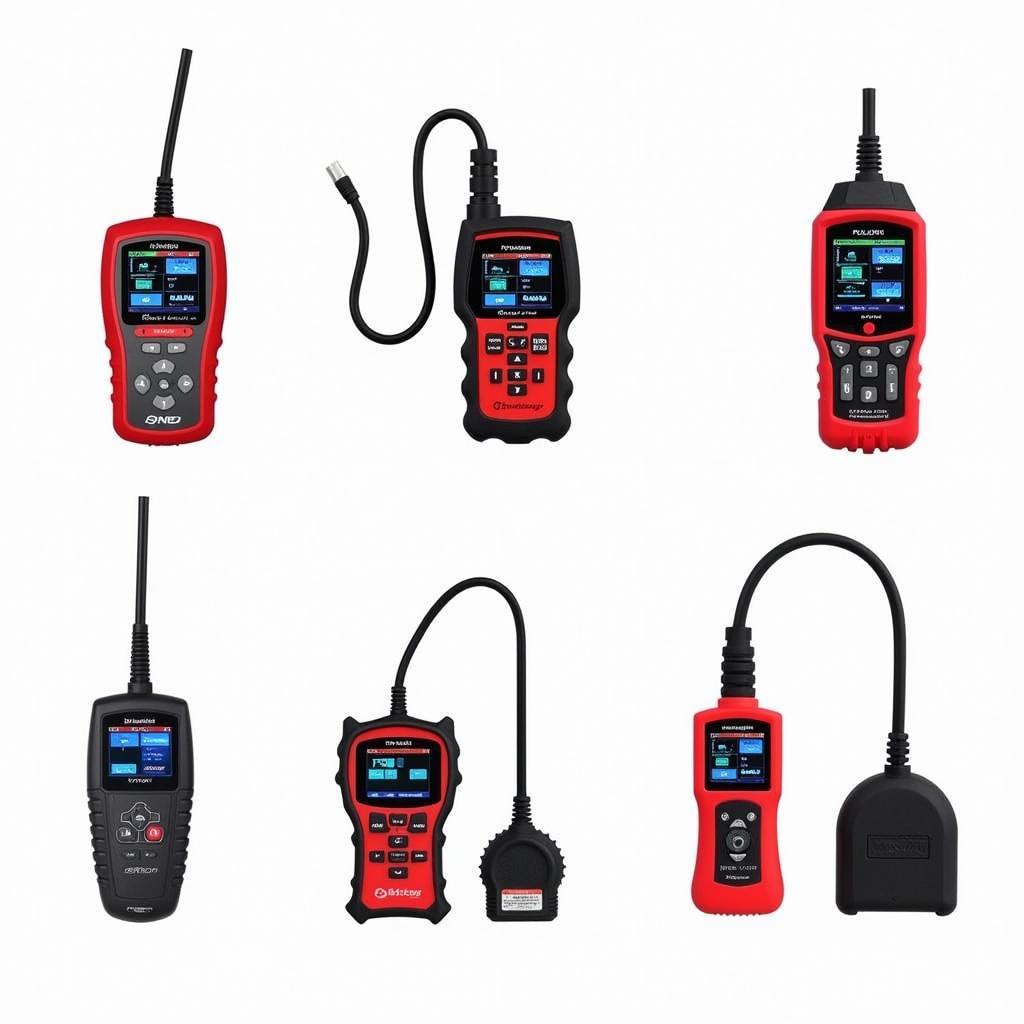Choosing the Best Obd Car Diagnostic Tool can be overwhelming with so many options available. Whether you’re a DIY mechanic or a seasoned professional, having the right tool can save you time, money, and frustration. This comprehensive guide will walk you through everything you need to know to make an informed decision, ensuring you drive away with the perfect OBD car diagnostic tool for your needs.
Understanding OBD Car Diagnostic Tools: What You Need to Know
Before diving into the specifics, let’s clarify what an OBD car diagnostic tool is and why it’s essential.
An On-Board Diagnostics (OBD) system, mandatory in vehicles since 1996, acts as your car’s internal communication system. It monitors various systems and components, storing diagnostic trouble codes (DTCs) when something goes wrong.
This is where the OBD car diagnostic tool comes in. This handy device plugs into your vehicle’s OBD-II port (typically located under the dashboard) and allows you to:
- Retrieve and interpret DTCs: Understand why your check engine light is on.
- Reset the check engine light: Once you’ve addressed the issue.
- Monitor live data streams: Track parameters like engine RPM, speed, coolant temperature, and more in real-time.
- Perform advanced functions (on some models): Such as ABS bleeding, key fob programming, and more.
Types of OBD Car Diagnostic Tools
OBD car diagnostic tools come in various shapes and sizes, catering to different needs and budgets. Let’s explore the most common types:
1. Basic Code Readers:
- Ideal for: DIYers and car enthusiasts on a budget.
- Functionality: Retrieves and clears basic DTCs.
- Connectivity: Typically connects directly to the vehicle’s OBD-II port.
2. Bluetooth or Wi-Fi Adapters:
- Ideal for: Smartphone and tablet users seeking more features.
- Functionality: Pairs with dedicated apps to provide code reading, live data, and graphing capabilities.
- Connectivity: Connects wirelessly to your device via Bluetooth or Wi-Fi.
 Using an OBD2 App for Car Diagnostics
Using an OBD2 App for Car Diagnostics
3. Professional-Grade Scan Tools:
- Ideal for: Professional mechanics and advanced DIYers.
- Functionality: Offers comprehensive diagnostics, advanced programming, bi-directional controls, and more.
- Connectivity: May include wired, wireless, or both connectivity options.
Factors to Consider When Choosing the Best OBD Car Diagnostic Tool
Now that you understand the different types, let’s discuss the key factors to consider when making your decision:
1. Vehicle Compatibility:
- Ensure the tool supports your vehicle’s make, model, and year. Most tools work with a wide range of vehicles, but it’s crucial to double-check compatibility, especially for older or less common models.
2. Features:
- Code Reading & Clearing: This is a standard feature, but ensure it covers all engine codes, including manufacturer-specific ones.
- Live Data Streaming: Essential for monitoring sensor readings and diagnosing intermittent issues.
- Graphing & Logging: Useful for visualizing data trends and pinpointing problems.
- Advanced Functions: Consider features like ABS bleeding, key fob programming, or module coding if needed for your specific tasks.
3. Ease of Use:
- Opt for a user-friendly interface with clear menus and intuitive navigation.
- Look for tools with helpful resources like built-in troubleshooting tips, code libraries, or online support.
4. Budget:
- Set a realistic budget and explore tools within that range. Remember, the most expensive option isn’t always the best.
5. Brand Reputation:
- Choose reputable brands known for quality, reliability, and excellent customer support. Research online reviews and compare different brands before making a purchase.
 Different Types of OBD2 Scanners
Different Types of OBD2 Scanners
Expert Insights: The Value of a Reliable OBD Car Diagnostic Tool
John Smith, ASE Certified Master Technician:
“A reliable OBD car diagnostic tool is an indispensable asset for any mechanic. It’s the first line of defense in diagnosing car problems accurately and efficiently. The ability to retrieve codes, monitor live data, and access manufacturer-specific information is crucial for quickly identifying and resolving issues, saving both time and money for our customers.”
Conclusion: Empowering Yourself with the Right OBD Car Diagnostic Tool
Investing in the best OBD car diagnostic tool is a smart move, whether you’re a DIY enthusiast or a seasoned professional. It empowers you with the knowledge and control to understand your vehicle’s health, diagnose problems effectively, and potentially save on costly repairs. Remember to carefully consider your needs, budget, and the factors discussed above to make an informed decision.
FAQs about OBD Car Diagnostic Tools
1. Can I use any OBD car diagnostic tool on my vehicle?
Not necessarily. Ensure the tool you choose is compatible with your vehicle’s make, model, and year.
2. What is the difference between OBD and OBD2?
OBD is a general term for On-Board Diagnostics. OBD2 is the standardized version implemented in most vehicles since 1996.
3. What is a DTC?
DTC stands for Diagnostic Trouble Code. It’s a code stored in your vehicle’s computer system indicating a specific problem.
4. Will an OBD car diagnostic tool tell me how to fix the problem?
While it provides valuable diagnostic information and trouble codes, it doesn’t offer step-by-step repair instructions.
5. Do I need a professional-grade tool for basic DIY tasks?
No, a basic code reader or a Bluetooth adapter paired with a smartphone app is usually sufficient for DIYers.
Need Expert Assistance? We’re Here to Help!
For personalized guidance in choosing the perfect OBD car diagnostic tool or for any car diagnostic related inquiries, reach out to our team of experts:
WhatsApp: +1(641)206-8880
Email: [email protected]
Our dedicated customer support team is available 24/7 to assist you.

Leave a Reply